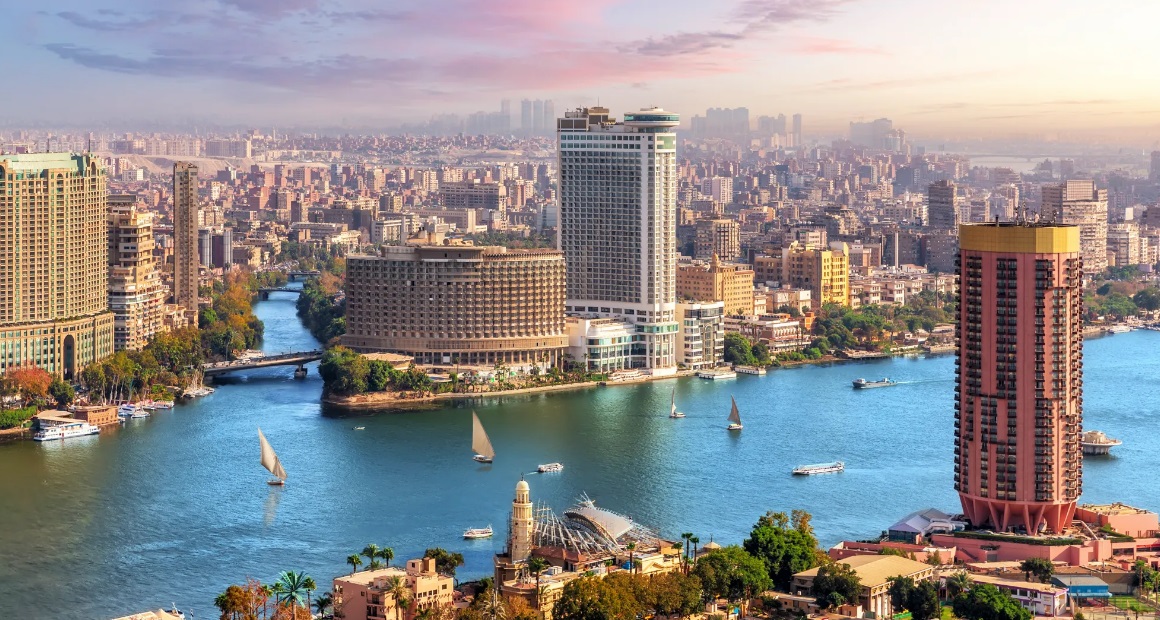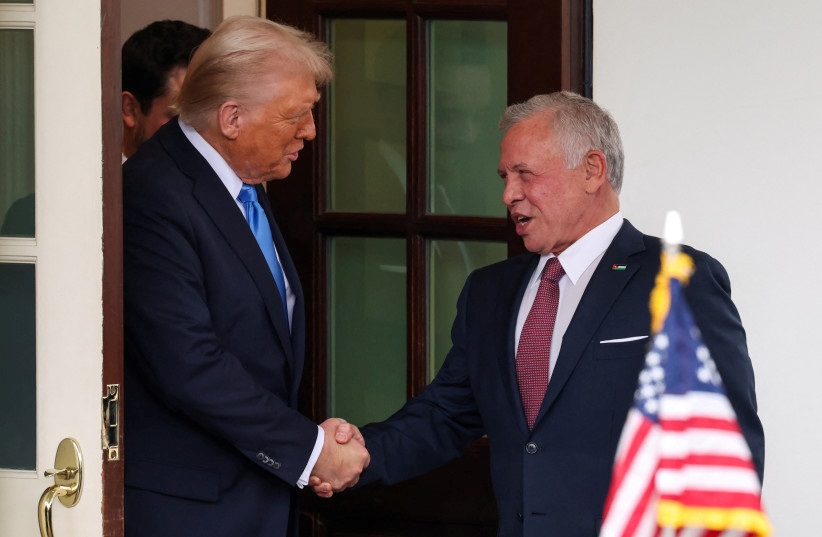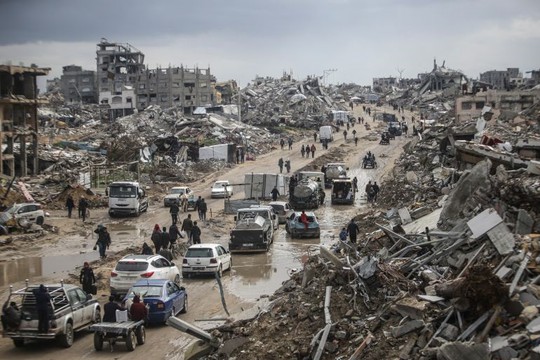Gaza today.
Photo: Al Jazeera
“The Palestinians and the Arabs need to come up with a middle way where they run Gaza, not the US and not Israel,” said a European official, quotes ‘The Financial Times’. “That’s the gap that needs to be filled, and I think the Europeans will work with the Arabs, both on the funding and the presentation of the plans. That’s what we are working on now.”
Egypt announced that it was working on a plan for the reconstruction of Gaza, much of which has been reduced to wasteland by Israel’s bombardment of the strip since Hamas’s October 7, 2023 attack.
Cairo is coordinating with other Arab states, particularly Saudi Arabia and Jordan, in the hope that it can prove to Trump that the strip can be rebuilt without forcing its 2.2mn population out of the enclave.
Trump has urged Egypt and Jordan to accept Palestinians from Gaza, which they have both vehemently rejected. They are loath to be seen as complicit in the forced displacement of Palestinians, as well as fearful that it would threaten regional stability and their own security.
Before any reconstruction could begin, Arab states and the Palestinians need to agree on a plan for an administrative structure that ensures Hamas does not control the strip, Arab and European diplomats said.
The idea being pushed by Egypt and other Arab states involves establishing a governing committee made up of Palestinians that are not affiliated to any factions, but is backed by the Palestinian Authority, the body that administers parts of the occupied West Bank.
The security component is still being discussed but is likely to include the existing police force in Gaza, PA personnel that remained in the strip after Hamas took control of it in 2007 following an internal battle with rival faction Fatah, and potential reinforcements from the West Bank.
The PA, which is dominated by Fatah, could then invite regional states to participate in a security force.
 Cairo.
Cairo.
Photo: realestate.gov.eg
A summit between the leaders of Egypt, Jordan, Qatar, the United Arab Emirates, and Saudi Arabia is set to occur on an unspecified date before the 27 February “emergency meeting” on Gaza in Cairo, Al-Araby TV said, citing Egyptian sources.
Those sources told the broadcaster that Egypt’s proposed plan so far includes the rebuilding of Gaza within three to five years without displacing its residents.
The plan would reportedly unfold in two stages: a cleanup of the rubble, followed by the reconstruction of residential complexes. The effort would begin in Rafah, in southern Gaza, which borders Egypt, and then move further north and encompass the entire Strip.
In a statement released by the Egyptian president’s office on Wednesday, Abdel Fattah el-Sisi reiterated once again in a phone call with King Abdullah that Gaza must only be rebuilt with its residents present.
As to who will fund the plan, Egypt is seeking the participation of the Arab world, the European Union, and the United Nations, Al-Araby TV said, leaving the US out of the equation.
Trump’s decision to "own” Gaza and develop it himself has suggested that unless Washington can benefit economically from Gaza, it wants no part in rebuilding it using taxpayer dollars.
 King Abdullah II with U.S. President Donald Trump
King Abdullah II with U.S. President Donald Trump
Photo: Reuters
King Abdullah II became both the first Arab leader to meet with U.S. President Donald Trump, and the first to directly reject his proposal to relocate Gaza’s two million Palestinians to Jordan. At the White House on Tuesday, Trump suggested cutting U.S. assistance to Jordan unless Amman accepted Palestinian refugees before the meeting. For Amman, this is far more than a financial matter; it is a red line tied to national sovereignty.
The kingdom already hosts over two million Palestinian refugees, and any forced displacement from Gaza risks compromising Jordan’s demographic integrity. Beyond the moral and legal objections, Jordan understands that accepting displaced Palestinians could set a dangerous precedent – one that could later be used to justify transferring Palestinians from the West Bank as well.
The nightmare scenario for Jordan is the “Gazafication” of the West Bank – the fear that worsening security conditions could force Palestinians to flee in large numbers, either through direct displacement or a slow demographic shift driven by economic desperation.
In both cases, this would turn the kingdom into the de facto alternative to a Palestinian state – a longstanding right-wing Israeli narrative that Jordan has categorically rejected.
Beyond the political risks, Jordan simply lacks the resources to accommodate more refugees. It already bears the highest refugee-to-population ratio in the world, placing immense strain on its limited infrastructure. Chronic water shortages – worsened by successive waves of refugees from Palestine, Iraq and Syria – have pushed the country’s resources to the brink. Despite hosting the majority of refugees in the region, Jordan has received inadequate international support, forcing it to shoulder a disproportionate burden.
In a region where stability is fragile and influence is often exerted through internal divisions, Abdullah’s statement was a firm reminder that Jordan’s future will be shaped by its own priorities, not dictated by forces beyond its borders.
read more in our Telegram-channel https://t.me/The_International_Affairs

 10:53 19.02.2025 •
10:53 19.02.2025 •























